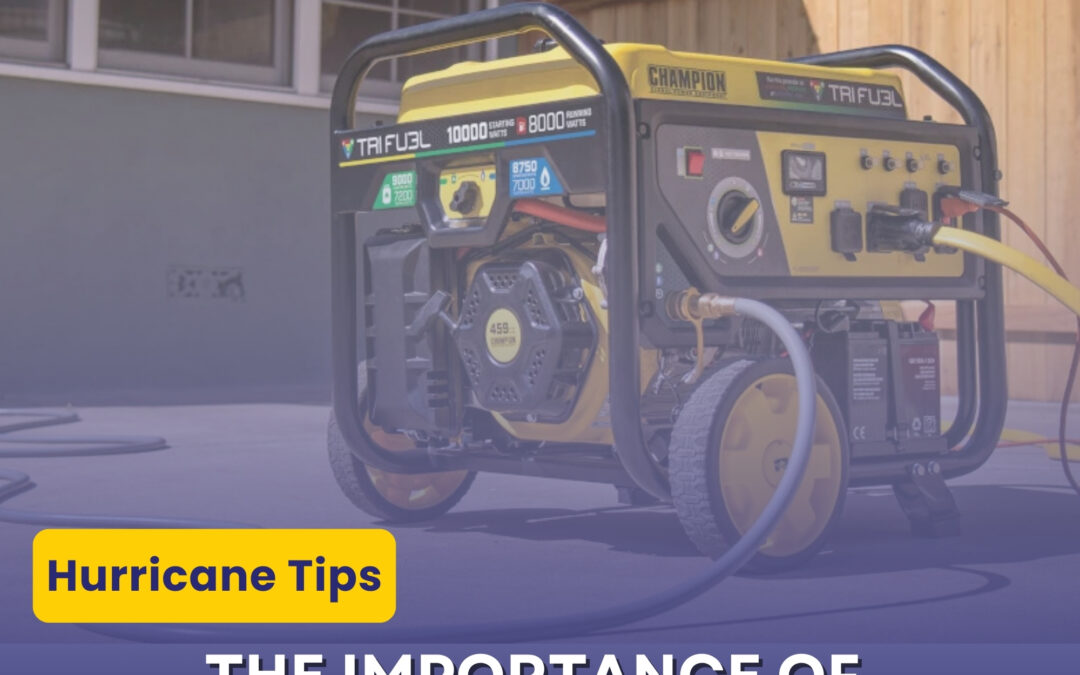As hurricane season approaches, many households prepare by stocking up on essentials like water, non-perishable foods, and batteries. One crucial piece of equipment that often becomes a lifesaver during these times is a generator. While generators can provide much-needed power when the power goes out, they also come with risks if not used correctly. Here’s a guide to ensure you and your family stay safe while using a generator during hurricane season. Keep in mind that we are Port St. Lucie personal injury lawyers but we also serve other areas like Vero Beach and Okeechobee.
Safety Precautions Before Use
- Read the Manual: Familiarize yourself with the manufacturer’s instructions and safety guidelines. Each generator is different, and knowing the specifics can prevent accidents.
- Check for Recalls: Ensure your generator model has not been recalled for safety issues.
- Proper Installation: If you’re using a whole-house generator, have it installed by a licensed professional. Ensure it complies with local codes and regulations.
- Fuel Storage: Store fuel in a safe, cool place away from living areas. Use only the type of fuel recommended by the manufacturer.
Safe Operation Practices
- Ventilation: Generators emit carbon monoxide (CO), a deadly, odorless gas. Always operate your generator outdoors, at least 20 feet away from doors, windows, and vents. Never run a generator inside your home, garage, basement, or any enclosed space.
- Weather Protection: While generators should be operated outdoors, they need protection from the elements. Use a canopy or a generator tent that allows for adequate ventilation.
- Electrical Safety: Use heavy-duty, outdoor-rated extension cords to connect appliances to the generator. Ensure cords are free of cuts and frays and have a sufficient amperage rating for the connected devices.
- Backfeeding Prevention: Never plug the generator directly into a wall outlet. This dangerous practice, known as backfeeding, can cause electrocution risk to utility workers and damage to your electrical system. Use a transfer switch installed by a qualified electrician.
- Regular Maintenance: Keep your generator in good working condition. Regularly check for oil and fuel leaks and replace worn-out parts. Run your generator periodically to ensure it will function properly when needed.
During Operation
- Monitor CO Levels: Install battery-operated carbon monoxide detectors in your home to alert you of any CO buildup.
- Stay Dry: Operate the generator with dry hands and ensure the generator itself is dry. Water and electricity are a dangerous mix.
- Refueling Safety: Turn off the generator and let it cool down before refueling. Spilled fuel on hot engine parts can ignite.
After the Hurricane
- Continued Ventilation: Keep the generator running outdoors until the power is fully restored and no longer needed.
- Proper Shutdown: Turn off and unplug all connected appliances before shutting down the generator. Follow the manufacturer’s shutdown procedure to prevent damage.
- Fuel Disposal: Dispose of any leftover fuel safely and according to local regulations.
Generators can be invaluable during hurricane season, providing power when the grid is down. However, they must be used with care to prevent accidents and health hazards. By following these safety guidelines, you can ensure that your generator use is both effective and safe, keeping your home powered and your family protected during the storm.





